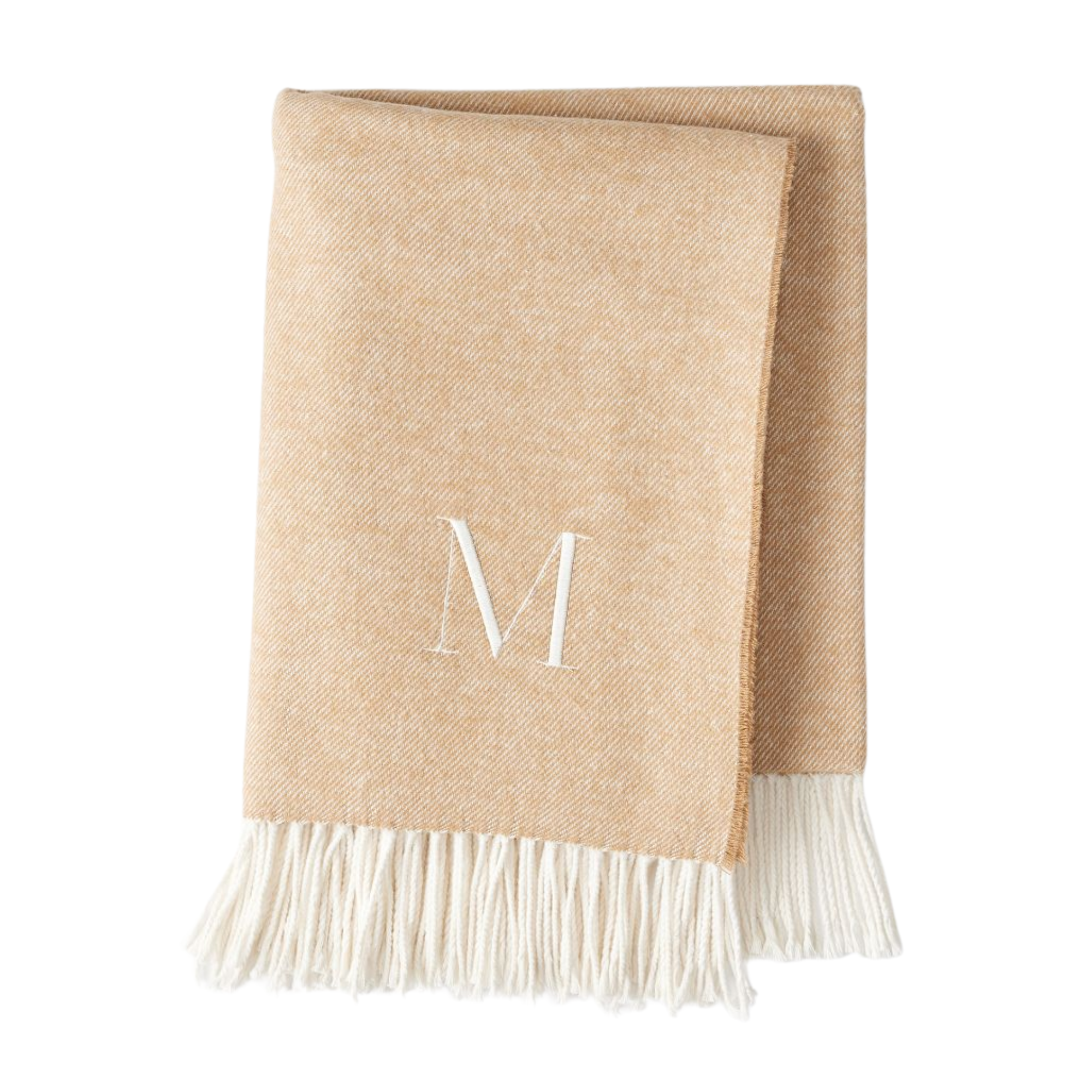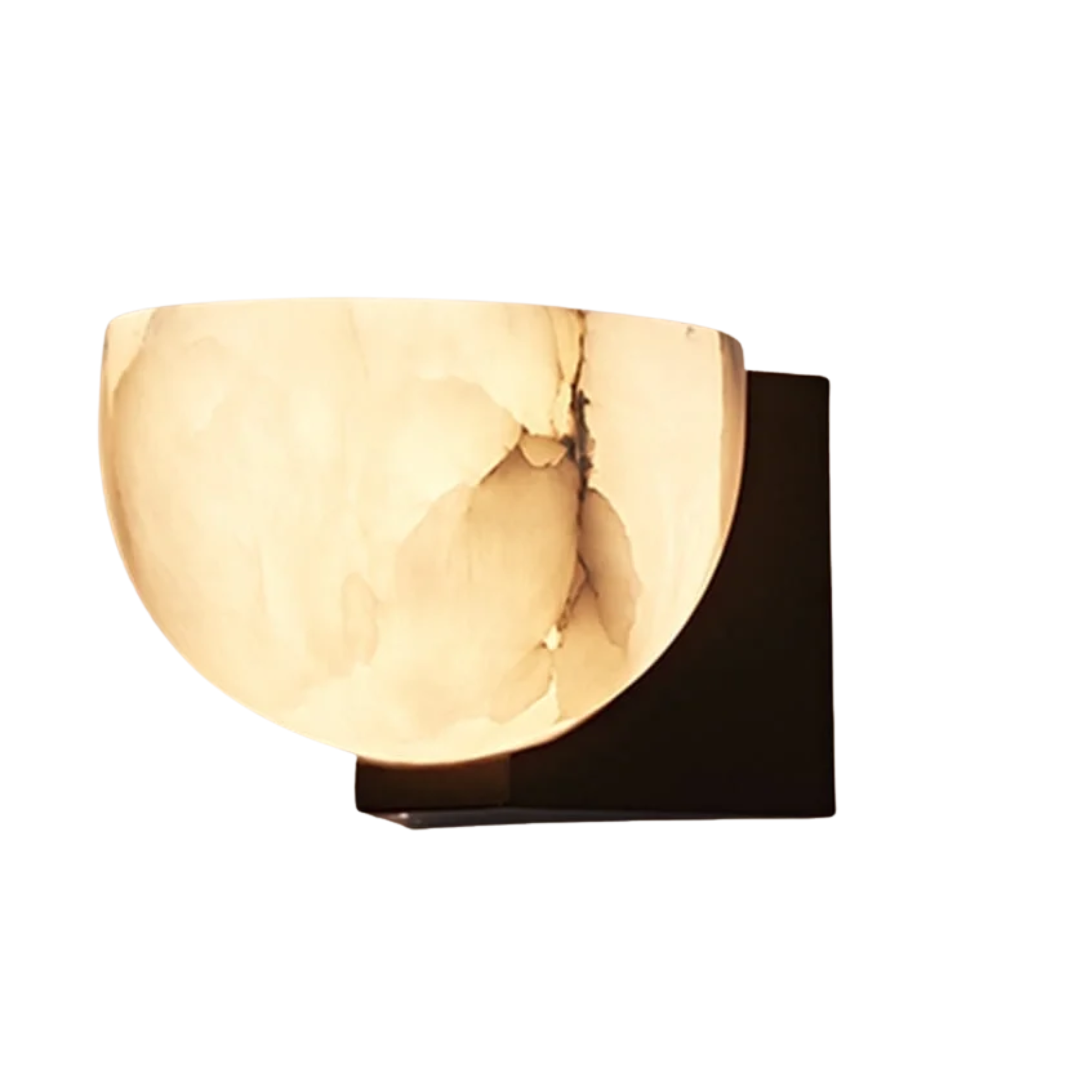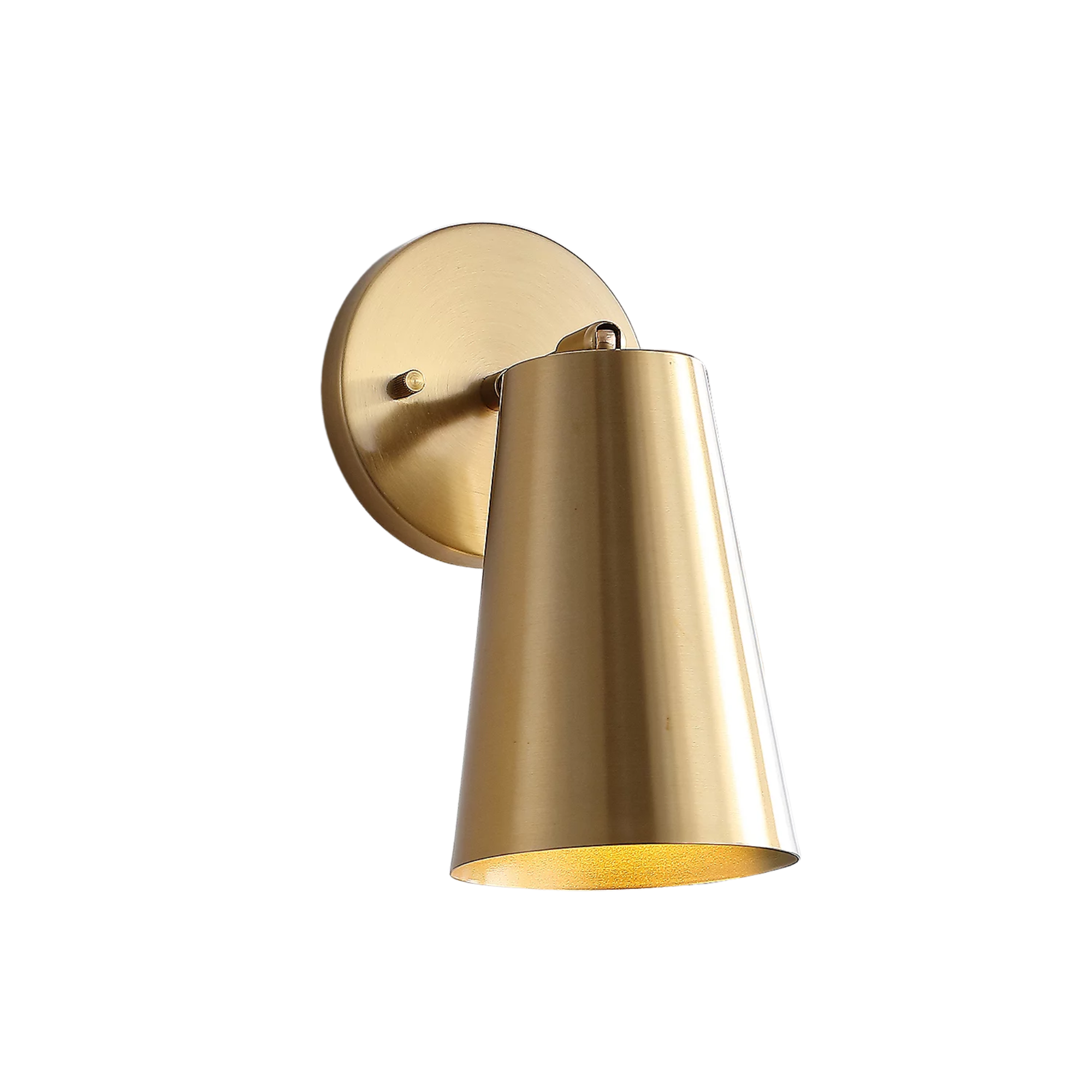I Asked Interior Designers to Share the Worst Decorating Trends They've Seen on Social Media
Just because something is trending, doesn't mean it's tasteful — from dupe-culture to OTT lighting, here's what designers hate seeing in homes

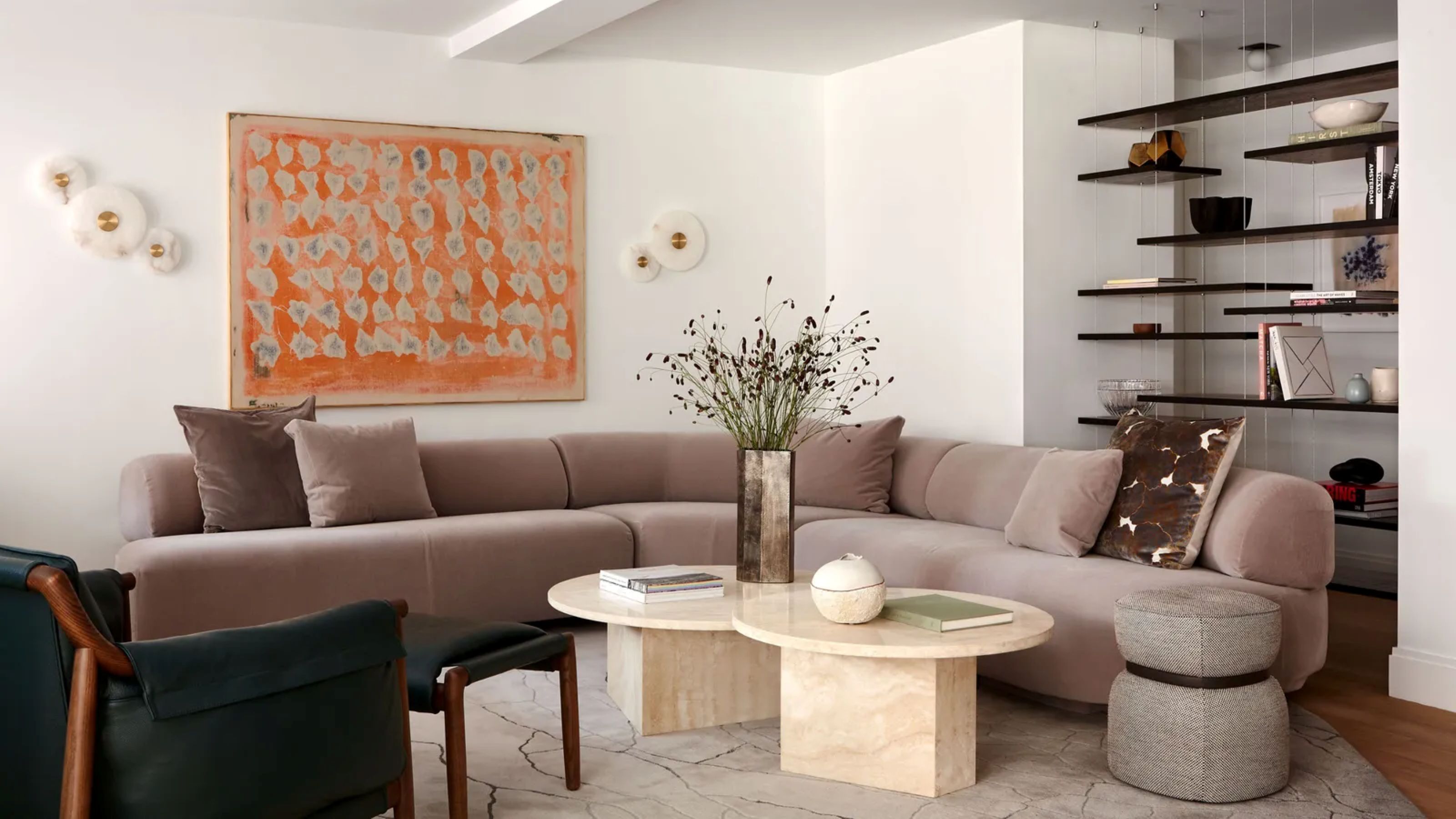
The Livingetc newsletters are your inside source for what’s shaping interiors now - and what’s next. Discover trend forecasts, smart style ideas, and curated shopping inspiration that brings design to life. Subscribe today and stay ahead of the curve.
You are now subscribed
Your newsletter sign-up was successful
With the pace of the world nowadays, it seems like new trends pop up out of the woodwork every single day. And while some stick and become timeless, let's be honest... most aren't made to stand the test of time.
Now, there's no shame in falling for a fleeting interior design trend. Trust me — we've all been there. With social media making it easier than ever to discover, rinse, and repeat any number of ideas, hacks, and purchases, it's totally normal to feel the pressure.
But how can we get ahead? To see a trend for what it really is. Well, I spoke to several interior designers, who shared the worst design trends they've seen on social media lately — from lighting choices to furniture picks and everything in between — as well as what they really wish everyone would do instead.
Here's six trendy traps they warned to treat with caution.
1. Dupe Culture
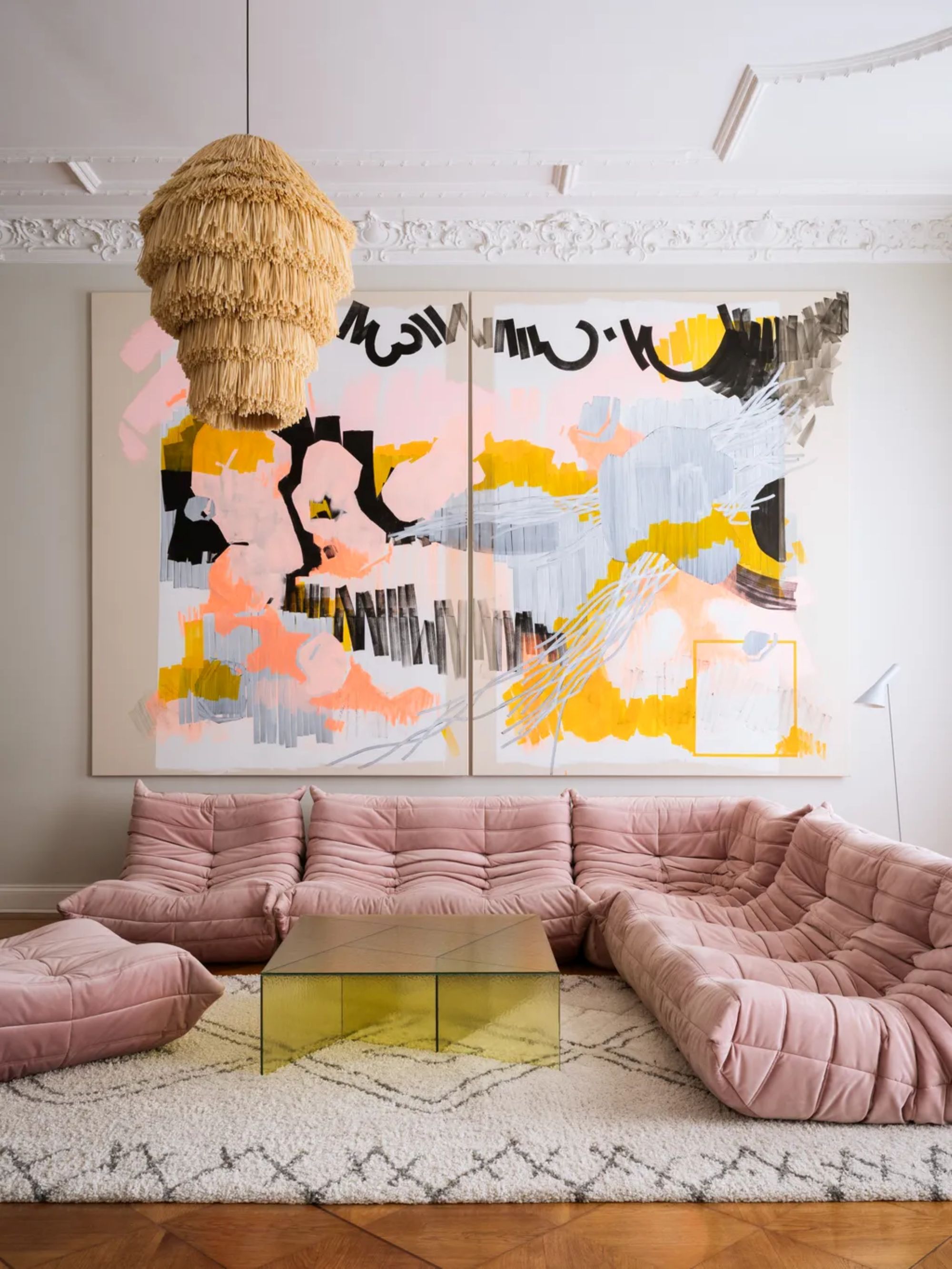
DO INSTEAD: Iconic pieces like Michael Ducaroy’s Togo Sofa can be expensive, yes, but if you respect design, it's worth the price tag.
With buying vintage and antiques on the rise, there seems to be a collective fascination right now with iconic furniture from the mid-20th century. Classic designs like Michael Ducaroy’s Togo Sofa or Herman Miller's Eames Chair have become status symbols, the telltale of a good design eye. Knock-off replicas? Not so much.
"Poorly made knock-offs are proliferating in the market," Anthony Barzilay Freund, 1stDibs’ editorial director tells me. And it's because of this that we're loosing sight of the craftsmanship that made these pieces so noteworthy to begin with.
These 'dupes' might come with a lower price tag, but they certainly don't promise the same level of quality as the furnishings they intend to replicate — making 'dupe culture' one of the worst design trends to emerge in recent years.
The Livingetc newsletters are your inside source for what’s shaping interiors now - and what’s next. Discover trend forecasts, smart style ideas, and curated shopping inspiration that brings design to life. Subscribe today and stay ahead of the curve.
Anthony says if you care, it's worth paying the price for the original. "Not only will the original be more comfortable and durable, it’s far more likely to retain its value (and even increase in value) should you decide to sell it," he adds.
Of course, it's not only the cost but actually sourcing these pieces that can be a challenge, and that's where learning how to thrift and shopping secondhand can help — knowing how to identify something valuable, assess its condition, and (hopefully) bag a bargain.

As the editorial director of 1stDibs, Anthony Barzilay Freund oversees all digital and print content, including 1stDibs’ weekly Introspective magazine; The Study blog; and The 1stDibs 50. Before his time at 1stDibs, Anthony was the Editor-in-Chief of Art+Auction and an arts and culture editor at Town & Country.
2. The 'Copy and Paste' Aesthetic
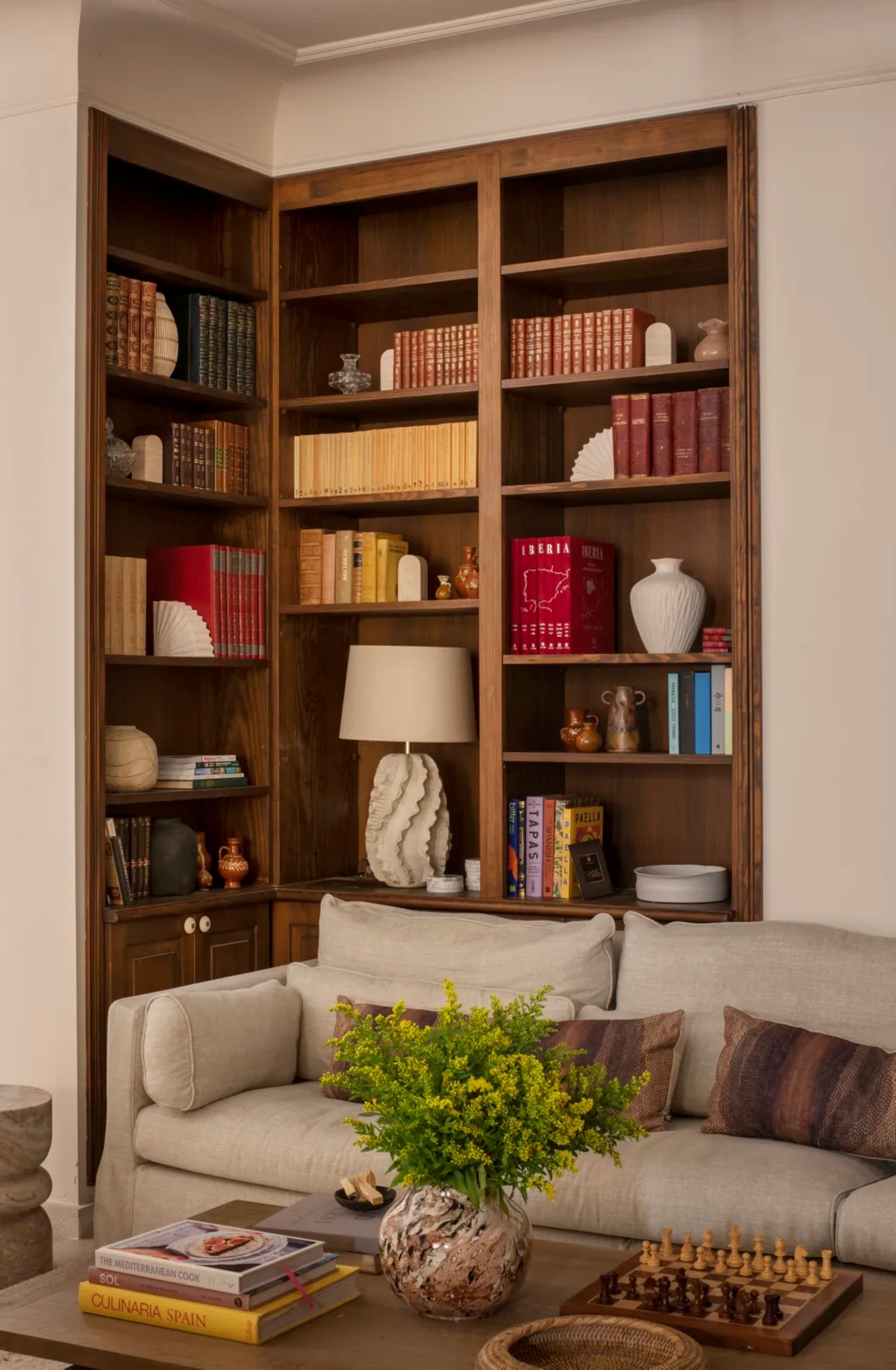
DO INSTEAD: One easy way to bring elements of your personality into you home is through bookshelf decorations.
'Instagram-ready' rooms are interior designer Jodi Peterman's biggest design ick. "I’m honestly just tired of seeing the same room over and over again," she tells me. "It’s like people are copying and pasting the same design from Pinterest, Interest, or TikTok — bouclé chairs, fluted everything, the same arch mirror, beige on beige — and none of it feels personal."
Interior design is a way of expressing yourself, so it should feel personal to you. In your home, there are no rules. To avoid the 'copy and paste' trap, Jodi suggests you, "Start by asking yourself how you want to feel in your space, not just what you want it to look like. That changes everything," she says.
Once you've established that, move on to decorating. "Bring in things that matter to you — mix in something vintage, use color that makes you happy, or add something with a story behind it," she says. Adding personality to your space is bound to make it feel more authentic and uniquely yours — something no trend can replicate.
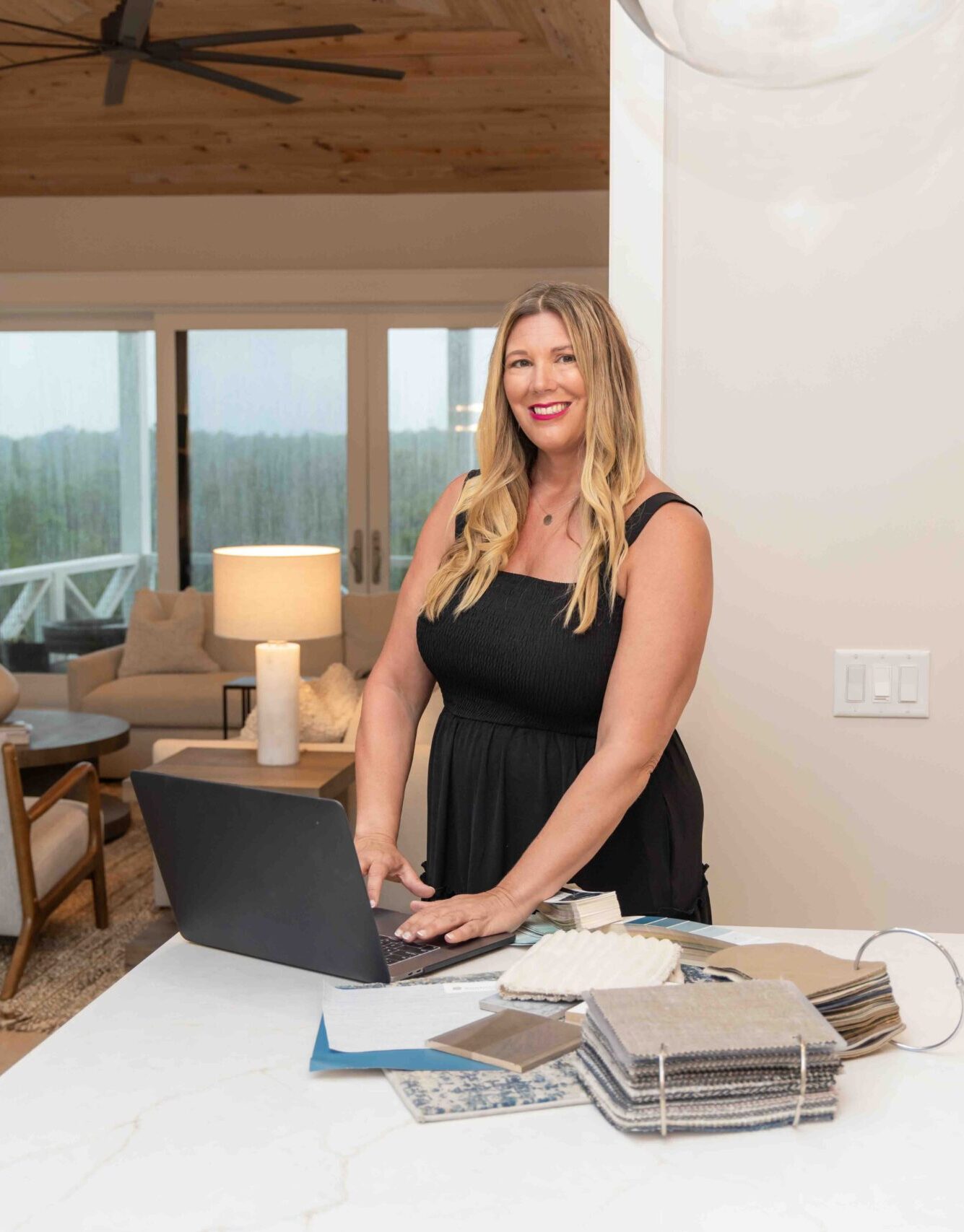
Jodi Peterman is an interior designer, founder, and CEO of Elizabeth Erin Designs. She has decades of experience in the design industry and has completed over 300 high-end design projects across the United States with her team.

One of the best ways to infuse your space with personality is through books that speak to your likes and interests. If you're a lover of art history, consider adding this stylish coffee table book to your living room. Not only will it bring some color to your space, but its contents bring a fascinating perspective on art throughout the ages.

An inexpensive way to express yourself in your home is through collectables — matches being a common (and easy) thing to collect. Often times, you can get matches at restaurants and turn them into artwork in your home or keep a catchall dish displaying your collection. This box features a playful design that can add some fun to your space.
3. Experimental Curtain Rods
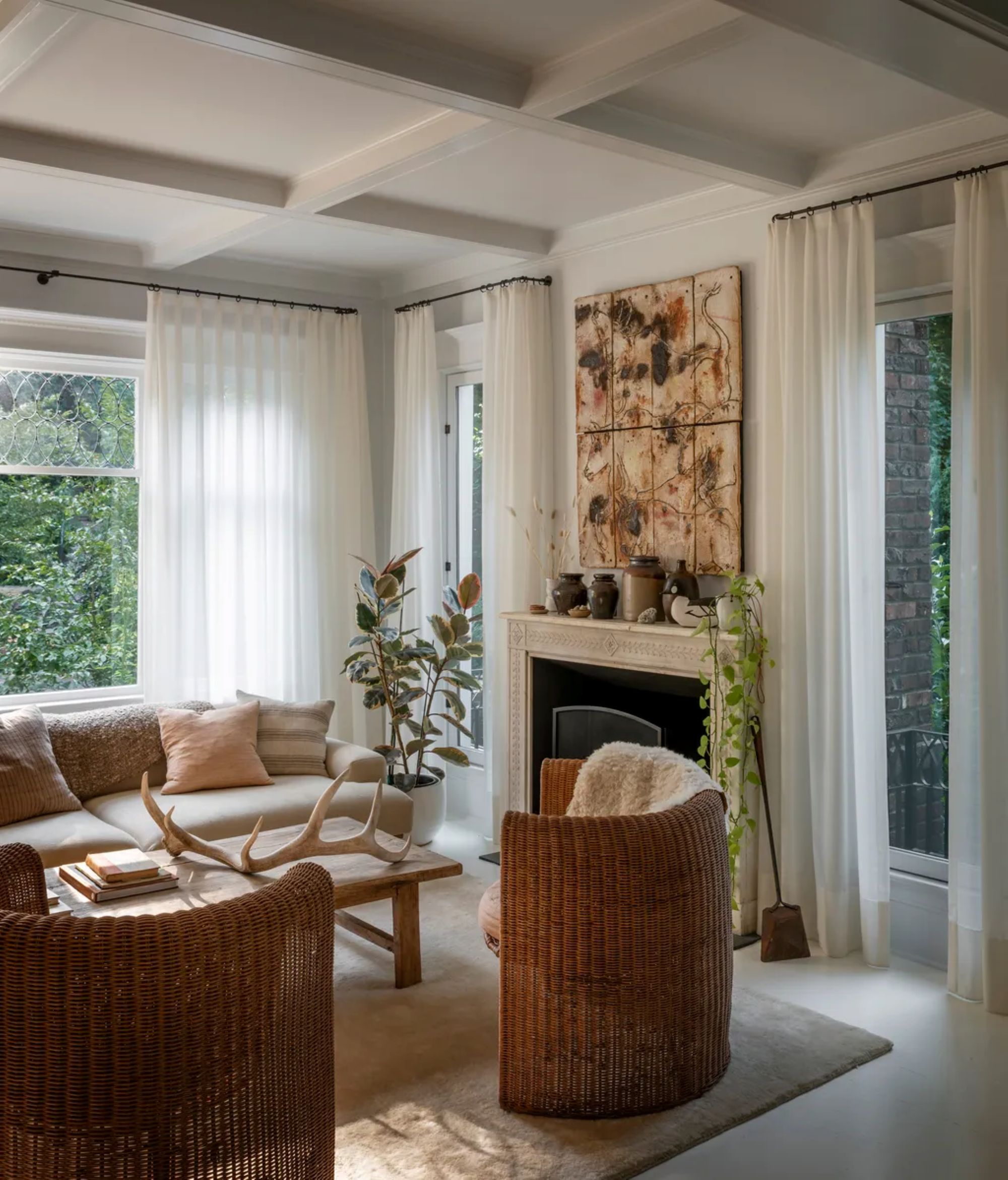
DO INSTEAD: Custom drapery rods can add a touch of elegance to your living room design — they're a mature upgrade from plastic tension rods.
Be honest: do you really thing the shower rod holding up your living room curtains looks stylish? Yes, it may be a cheaper solution to choosing curtain rails, but it likely looks temporary, tacky, and could even cause damage.
"I see a lot of interior design hacks online where people try to get creative with purchasing anything but custom drapery rods for their window treatments — they think tension rods, shower rods, etc., will do the trick," says Steph Schlegelmilch, founder and creative director of Studio Seva.
And it's a missed opportunity, according to Steph, who thinks a custom curtain rod is one of those small details that completely elevates a room. "We always invest in a custom drapery rod which we can fit to the size of the window perfectly to maximize the height and width of the space all while supporting the weight of the fabric," she adds.

Steph Schlegelmilch is mind behind Studio Seva, a multi-disciplinary design firm based in Westport, Connecticut. She developed a passion for the design world from a young age, and now creates stunning interiors that feel current, yet refined, by blending comfort with style.
4. Going OTT on LEDs
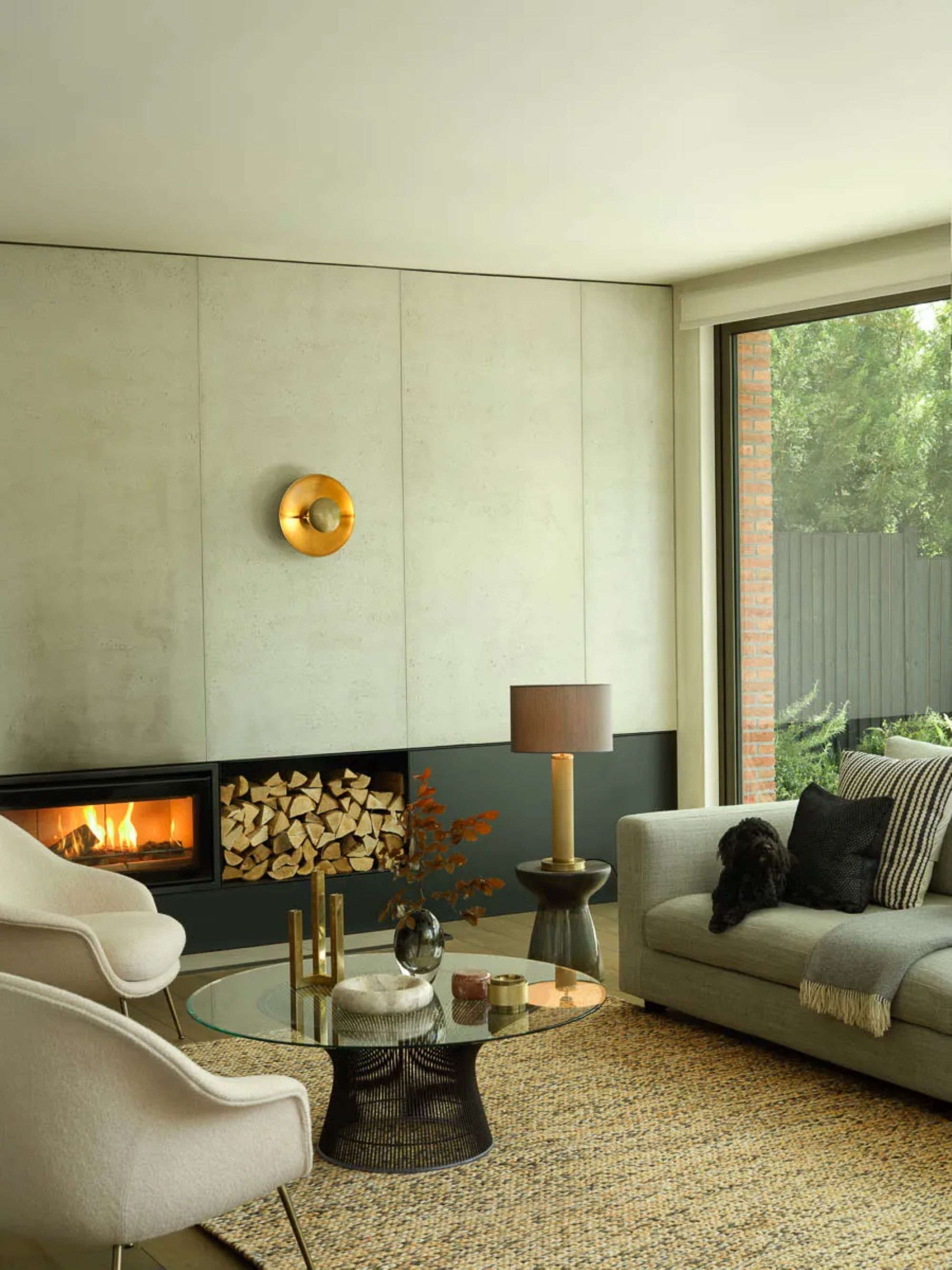
DO INSTEAD: Wall sconces can introduce light in a subtle yet alluring manner — opt for sculptural styles that can add character to your space.
Getting your home lighting set-up right is tricky. There's a lot to consider, and LED lighting ideas are undoubtedly a quick, easy, and cost-effective solution — within reason.
"The excessive use of LED lighting, particularly in non-essential areas, needs to be retired immediately," designer Sally Wilkins tells me. "I'm seeing things like LED-lit arched feature walls in living rooms, with the led strip following the curve of the arch — it's just too much!"
Instead, Sally recommends focusing on smaller wall lighting features to achieve a tasteful, ambient glow in your home. "Wall sconces offer a gentle wash of light, a warm glow and visual interest, and the wide variety of shapes, materials, and shades available provides homeowners with creative freedom," she adds.
But be aware — not all wall sconces are created equally. Vintage-inspired LED wall sconces can become a bit of an interior eyesore, too, it seems. "While these seem like a great hack, they never look authentic and often look more like a prop casting unflattering blue tinted light," Gabriela Eisenhart, founder and principal at Silo Studios, adds.
So when choosing your wall sconce, consider styles that might benefit the architectural features of your room, or make an exciting stylistic statement.
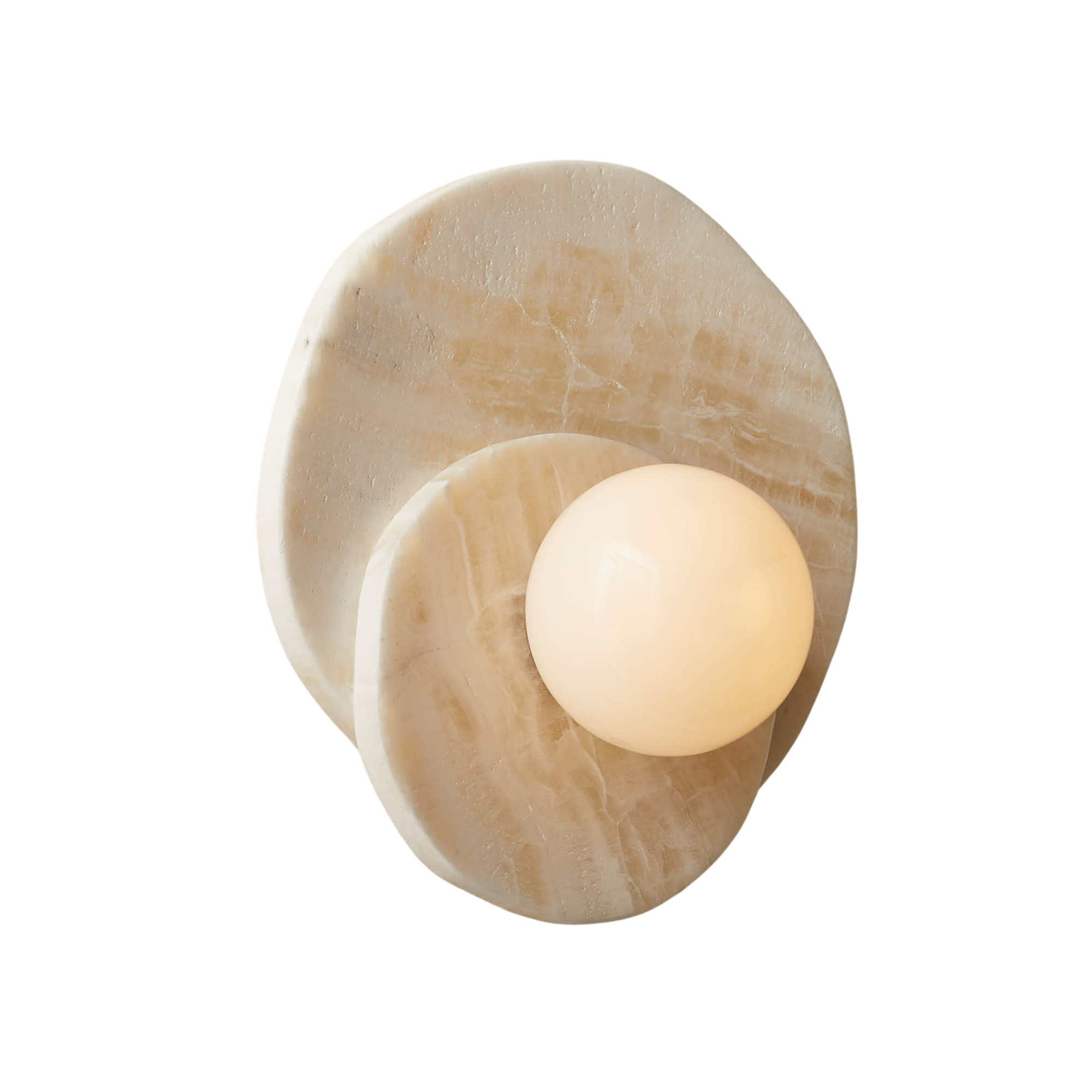
It's a light source and an art piece. This wall sconce is a modern and stylish option made from two pieces of cream onyx stone that support a glass globe. When not in use, this sconce still makes quite the statement and will certainly enhance the look of any room.
5. Buying Everything From the Same Place
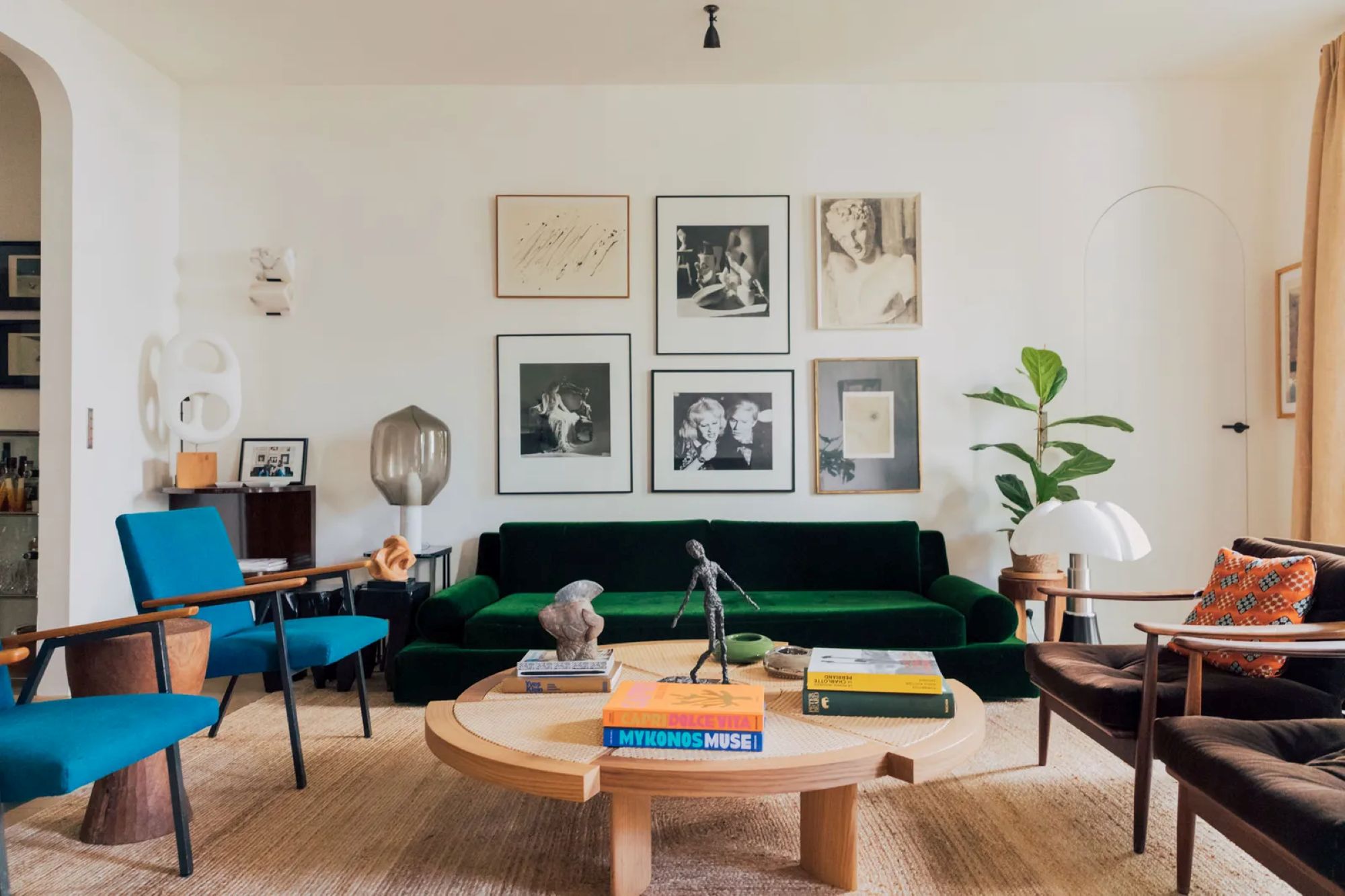
DO INSTEAD: You don't need to match every feature in your home — sometimes, the best homes are complete with spaces that feature several different finishes, colors, and materials.
In the past few years, we've seen an influx in interiors that match perfectly — almost too perfectly. Ideas like sandwich method (borrowed from the fashion industry) are based on matching and provide an easy way to navigate decorating. It's a fool-proof guide to pairing colors, textures, or patterns in order to create some sort of visual cohesion in your space.
Now, visual cohesion is all well and good, but sometimes when the match is too 'spot on', a room can fall flat, become uninteresting, and in a way, predictable. "I think people need to let go of the idea that everything should match," Jessica Flake, architect and lead designer at Copper Sky Design and Remodel shares with me.
Just consider the world around us, she adds. Our natural environment is layered with different colors, textures, patterns, and materials and our homes should be as well. You can still create clean, calming environments while layering and adding depth in your space."
This trend trap is most common in the kitchen, warns Jessica, especially when it comes to our choice of hardware and finishes. Instead, ideas like mixed metallics in a kitchen bring our spaces to life.
6. Peel-and-Stick Faux Pas
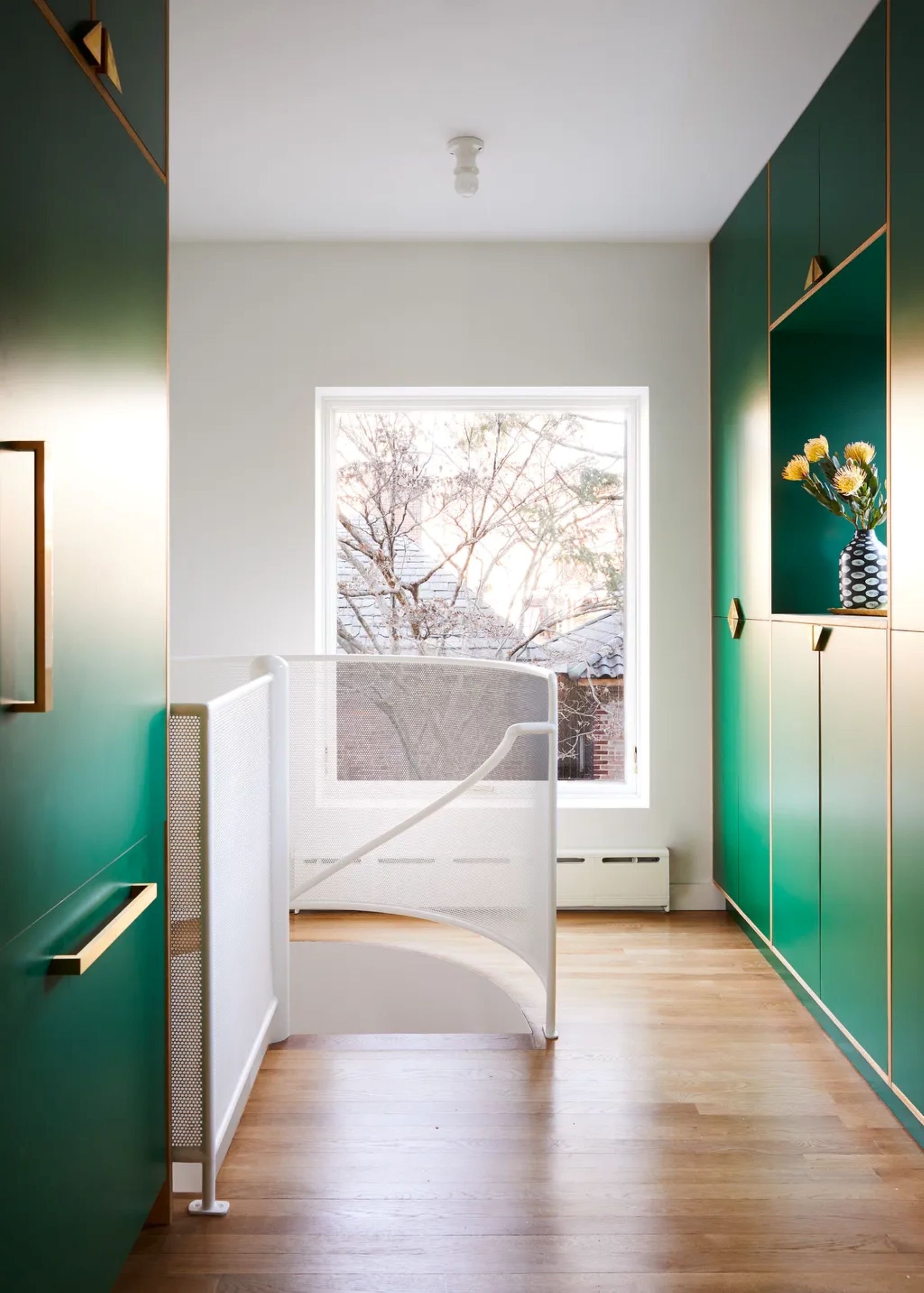
DO INSTEAD: Renter-friendly design hacks like peel-and-stick wallpaper come with their fair share of issues. Instead, opt for easier hacks, like adding unique cabinet hardware.
While they might be dubbed a 'renter friendly' update, the unfortunate truth is that peel-and-stick wallpaper, tiles, and countertops aren't always the best option for quick and budget-friendly fixes.
"Many of these finishes do not hold up well to high humidity levels, temperature swings, or medium to long term wear and tear," says Jessica Flake. "They also tend to leave behind more residue than the product brands would like you to believe, leaving you with a tricky mess to clean up later."
With that said, peel-and-stick anything is such a popular and common design trend, especially when it comes to temporarily personalizing a space. So if not it, what?
"I would recommend sticking to making changes to items that are not as invasive," says Jessica. Things like cabinet hardware, lighting, and small interior decorations are all very easy to add into or take away from a space — and they typically won't cause you too much stress when the time comes to move out.
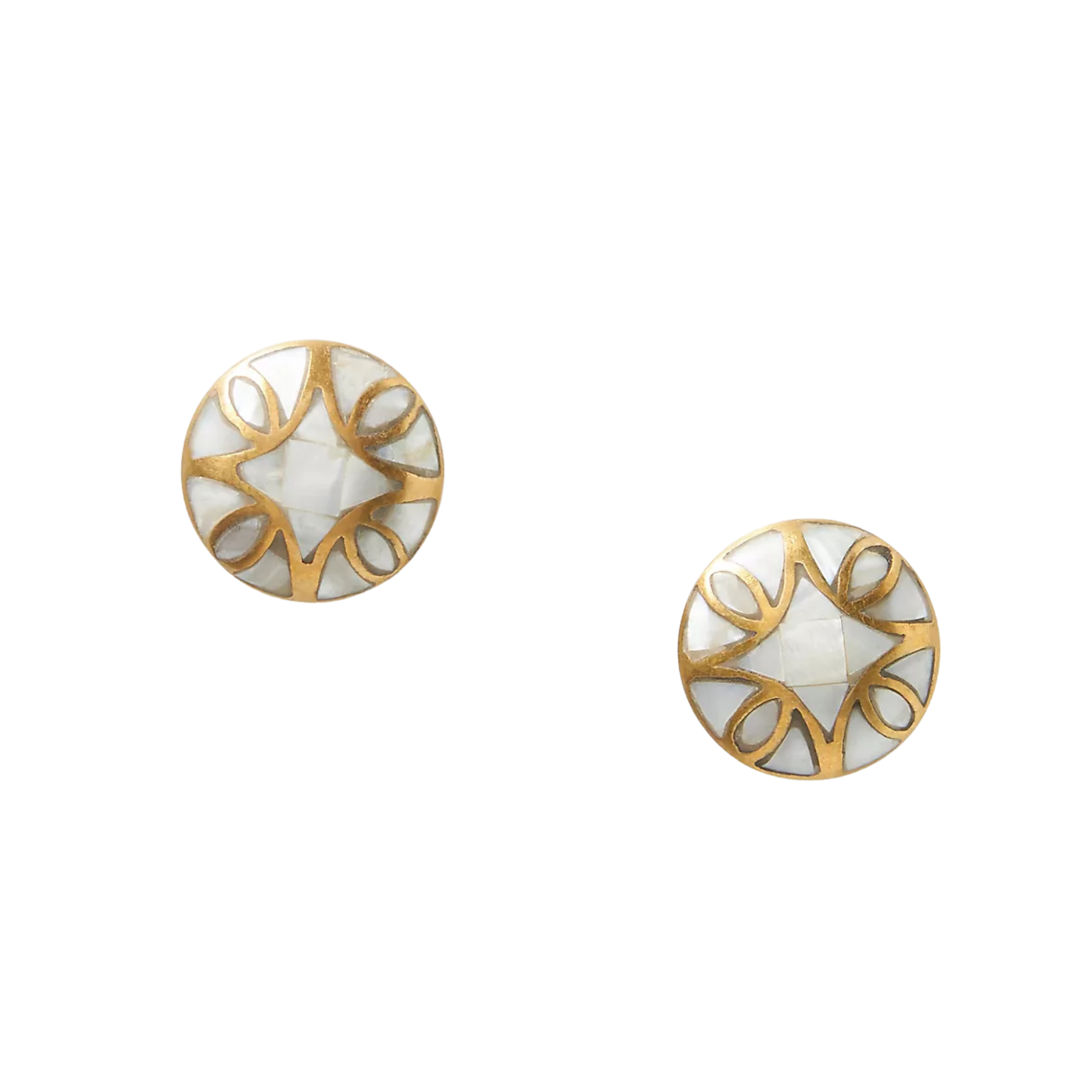
An easy way to personalize your space (and avoid the hassle of peel-and-stick paper) is by changing your cabinet hardware — a small colorful cabinet pull can make a world of difference in your space. This pair has a vintage charm and would look fabulous in a bathroom or kitchen.
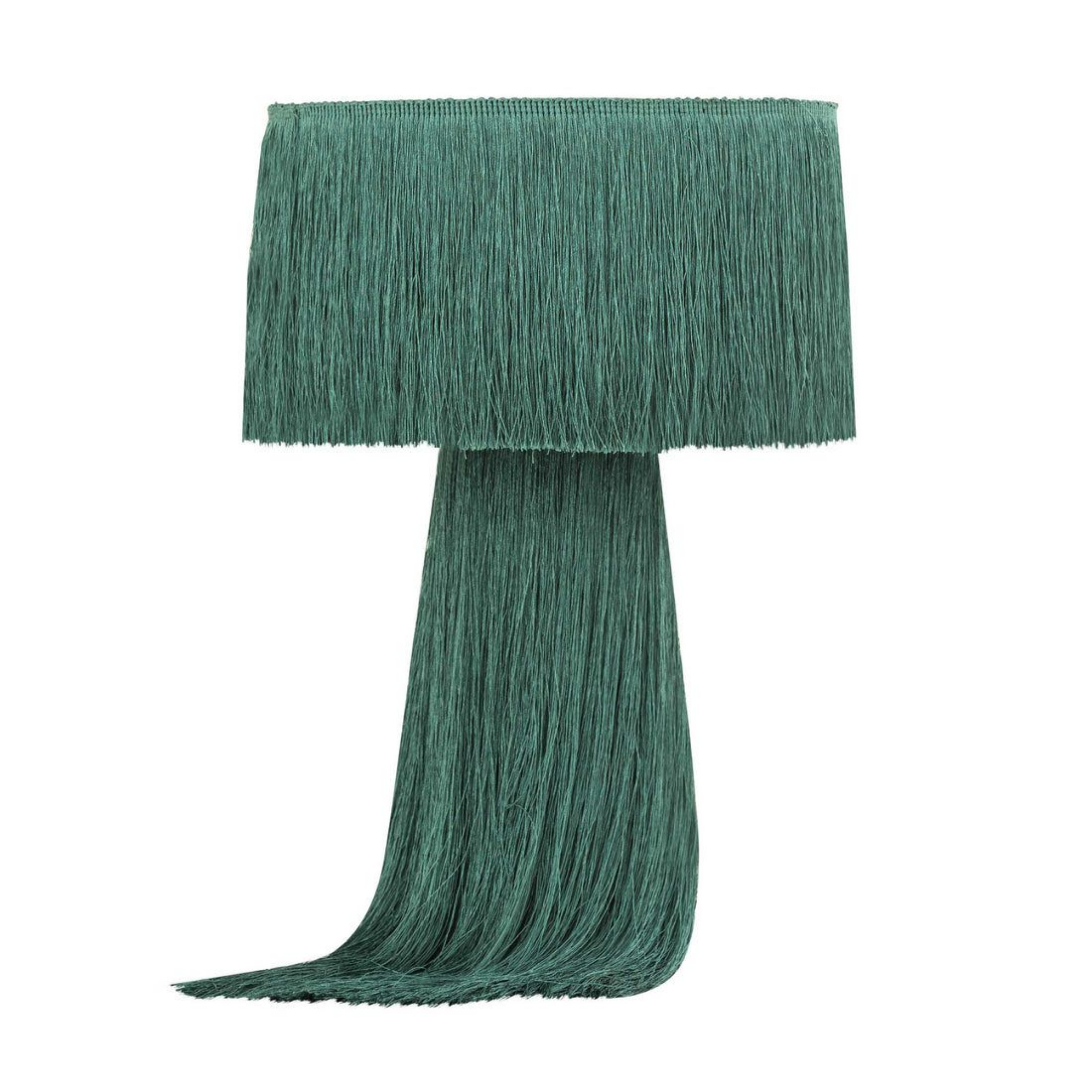
One easy way to personalize a space? Funky table lamps. Opt to bring a style like this green fringe lamp into your apartment for a touch of personality that doesn't require hours of labor and acetone for removal.
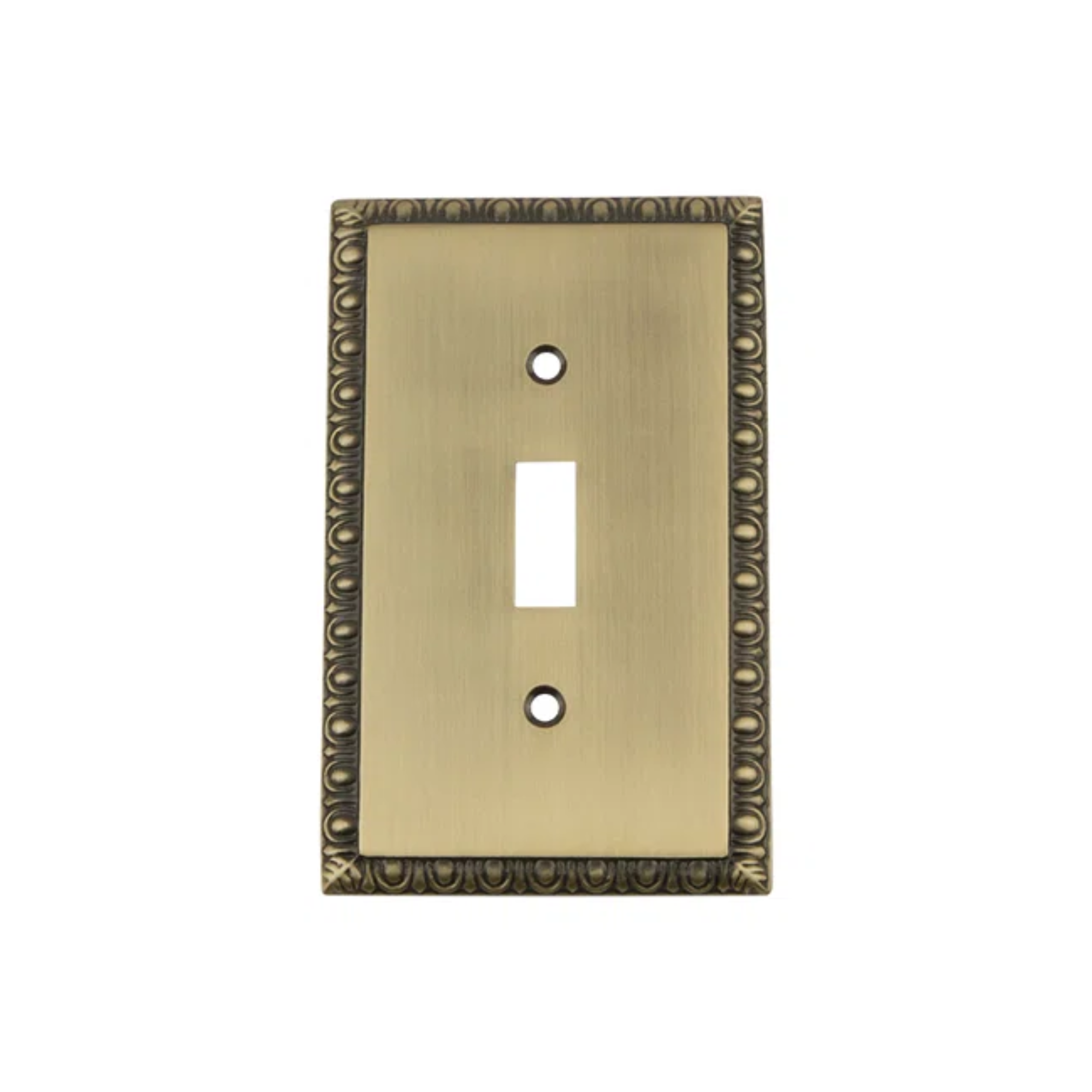
Just like changing out your cabinet hardware, you can also replace light switches in a rental. This is a really small, simple, and low effort fix, but can add a significant amount of personality to your space. A style like this gold switch plate with its decorative border will add some character to your room.
While it's easy to get caught up in the latest trends, or avoid the ones that miss the mark, it's worth remembering that the most important opinion is your own.
As Jodi Peterman puts it, "You don’t need to chase trends to have a beautiful space. You need to tell your story. That’s what makes a home memorable."

Devin is a New York-based style editor for Livingetc who is keen on all aspects of personal style. From a young age, she was drawn to the design world, and she loves sharing design choices with her readers, from explaining how to incorporate trends into interior spaces to sourcing the best products for your home. Devin believes style should be inclusive, exciting, and at its core, fun.
